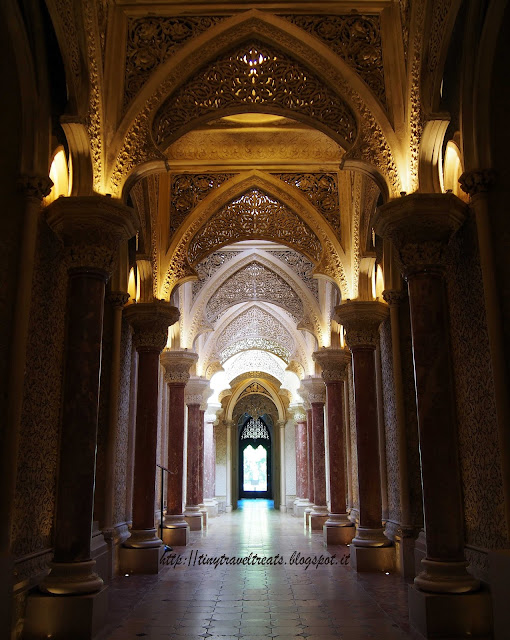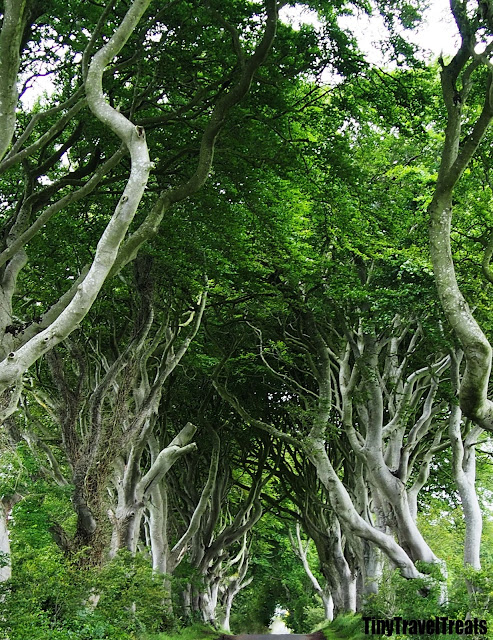Eclectic Romances
The Palacio de
Monserrate rests on the soft peaks of Sintra, a fairy-tale-like cultural
landscape near Lisbon in Portugal. The unique landscape parks surround the
edifices that look like a crayon box advertisement representing both the
romanticism and the eclecticism in the architecture of the 19th century during
which romanticism required the emphasis on emotions and exhalted the images of
the past such as the romantic images of ruins represented in nature.
Consequently, the longing for the past
satisfied itself in the combination of the previous styles in many cases
as it did in Sintra palaces. Once a person stands in any one of them, it is not
possible not to seize these tendencies of the era; the lust, the greed, or the
passion that surrounded their owners, those who seeked to have everything the
ancestors of those lands had. The Monserrate, as a very fine example of such
19th century eclecticism and romanticism, was envisioned by Sir Francis Cook, a
British merchant, on the ruins of a previous palace with Indian, Gothic and
Moorish influences. It became a summer house for the family with its vast
garden with dozens of different plants where one can even find a ruin of a
church, not a ruined church under natural circumstances but one that was built
intentionally as a ruined church, as one would have expected from such a palace
that represents its kind so well. It is an abode, an abode for the
back-then-newly-emerging social group that was not able to claim the Gothic or
the Moorish palaces and its architecture of nobility, but then had the capital
to reproduce it in its domestic quarters, in its fantasies, in its eclectic
romances in which you can feel all languages and prayers echoing in its now
empty corridors even long after the death.
"From my mouth
you will year Arabic, Turkish, Castilian, Barber, Hebrew, Latin, and vulgar
Italian, because all languages and prayers belong to me. But I belong to none
of them. I belong only to God and to the earth, and it is to them that I will
one day soon return."
goes the best
quotation to summarize the feeling in Sintra
by Amin Maalouf in Leo Africanus



Comments
Post a Comment